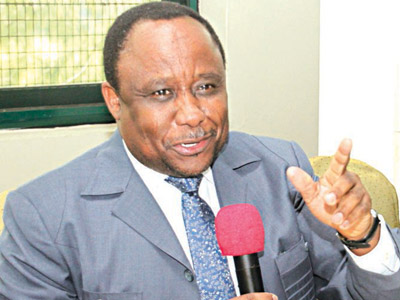
Beyond financial intermediation, development finance institutions, like the Bank of Industry (BoI) are accorded a more active and ‘creative’ role, as central players of the real economy who act as catalysts for industrialisation and growth. Within the last one year, the Bank of Industry, since the appointment of Rasheed Olaoluwa, has embarked on a couple of reforms to implement its industrial development strategies in a bid to promote self-sufficiency and import substitution. FEMI ADEKOYA examines the catalytic role of the bank’s initiatives across the manufacturing and agro-allied sectors.
On assumption of office on the 19th of May, 2014, the Managing Director of the Bank of Industry (BoI), Rasheed Olaoluwa unveiled his strategy for implementing the bank’s development intervention agenda, focusing on Small and Medium Enterprises, Large enterprises and the agro-allied sector.
To implement this strategy, the bank’s board was re-jigged to reflect the agenda; new products were introduced while operational efficiency became a measure of appraising the bank’s performance.
Leveraging his versed experience in the financial sector, Olaoluwa embarked on addressing the imbalance caused by commercial banking institutions in the area of financial intermediation for industrial firms and small businesses by restating the bank’s commitment to the growth of SMEs, noting that the problem of many SMEs is not access to cheap funds as claimed by many present and intending small businesses but the inability of such entrepreneurs to develop and defend bankable projects.
Indeed, the financial sector in a typical economy is saddled with the primary responsibility of financial resource mobilization and intermediation. It engages in the redirection of funds from surplus spending units to deficit spending units.
The impact of the delivery of these financial services in the form of working capital to producers is felt in the short run.

Speaking at a media parley commemorating his one year in office, Olaoluwa explained that the bank’s intervention agenda under his leadership identified a 15-point agenda that would be implemented to aid the realisation of the bank’s mandate of supporting industrialisation in the country.
According to him, bank’s activities in the last one year have revealed a steady move towards realising such mandate while enhancing return on investments for stakeholders.
Specifically, from the introduction of a N5 billion Cottage Agro Processing (CAP) Fund to the appointment of 122 business development service providers (BDSPs) to facilitate SMEs’ access to loans as well as the reduction of non-performing loans from 12.98 per cent to 4.09 per cent, the bank’s operational efficiency has been rated high by stakeholders accounting for its growth in profitability while leading to commendations by shareholders at the end of the 2014 financial year.
“We have developed a five-year Strategic Plan 2015-2019 under advice from the international consulting firm of KPMG Professional Services spanning our vision, mission, goals and objectives as well as core values.
“The Bank’s core mandate is the provision of financial assistance for the establishment of Small, Medium and Large Enterprises; as well as for the expansion, diversification and modernization of existing enterprises; and rehabilitation of ailing industries.
To this end, we have restructured our Large Enterprises Directorate along the key NIRP sectors of Agro Processing, Solid Minerals, Gas & Petrochemical and we have introduced a dedicated directorate for SMEs led by an Executive Director.
“Similarly, we introduced new SME products such as Cottage Agro Processing Fund and NollyFund to support Agro Processing and Nollywood Sectors respectively, while we have continued to impact the real sector of Nigeria’s economy by disbursing total loans of N127billion in 2014, bringing BOI’s cumulative loan disbursements to N781billion”, he explained.
He noted that the development finance institution has an authorised capital of about N250 billion, which he said N146 billion is paid up.
“We want to take steps to look at an alternative way of funding the financial institution because our capital has always come from the government.
We are looking at other sources already,” he stated. He said in terms of Non Performing Loans (NPLs), the bank recorded a relative high NPL in the past, but stressed that the bank had embarked on a number of initiatives to reduce the NPL, especially through loan recovery of facilities that were not properly monitored.
“In a nutshell, today, at the BoI, our NPL is less than 5 per cent. The development bank in Brazil, their NPL is 2.2 per cent, the development bank in South Africa; the NPL is 16.8 per cent. With less than 5 per cent as NPL, BoI’s ratio is not bad,” he said.
Already, to accelerate the bank’s intervention for small businesses, the bank, through a partnership with 122 Business Development Service Providers (BDSPs) and 10 commercial banks commenced processes to enhance funding of small businesses through an assessment of their proposals as well as increasing access to funds.
For the BDSPs, the partnership was sealed under a service agreement that would see the BDSPs assisting small businesses improving their chances to access to loans through the development of bankable proposals while enhancing the fulfilment of the bank’s goal of increasing its loan portfolio to SMEs.
The bank had attributed the current low level of financial support to SMEs to poorly packaged and non-bankable business plans and loan requests.
Olaoluwa explained that the move to appoint BDSPs became necessary in order to ensure that viable medium and small enterprises access long term finance that would further aid their contribution to job creation and the country’s Gross Domestic Product (GDP).
With operational efficiency serving as a key benchmark, Olaoluwa said bank is automating a lot of its processes to give SMEs the opportunity to be served better.
He decried the lack of patronage of locally produced goods, saying that Nigerians must patronise made-in-Nigeria goods in order for the country to achieve economic growth. “It is our national interest.
We are all complaining about the scarcity of jobs; we are complaining about economic issues. If we do not patronise our local producers, we will not make any progress.
There are people who have invested in facilities to produce here and after they have produced, they cannot sell and they go bankrupt and fire people and lay off staff. If they produce and are able to sell, they are able to grow and hire more people, thus translating to economic growth,” he said.
On his part, the Executive Director, Small and Medium Enterprises, Waheed Olagunju noted that the bank manages more than 32 national development schemes and intervention funds on behalf of private and public institutions as well as foreign agencies.
“SMEs are recognised as playing key roles in the economy of any society and Nigeria is not an exception.
However, they face numerous challenges including access to finance which can be overcome by appropriate strategies that must address their peculiar characteristics.
“Since challenges facing MSMEs are numerous and multidimensional, a holistic approach is required to de-risk these MSMEs and the bank has appointed BDSPs that can help in addressing this challenge”, he added.

Executive Director, Large Enterprises, Mohammed Alkali stated that the bank’s portfolio shows at least 814 facilities that received approvals cutting across several industrial groups.
He added that the bank’s intervention among large enterprises has aided the implementation of the Nigerian Industrial Revolution Plan (NIRP).
At the highest level, development finance institutions are potentially a strong technocratic voice representing the needs of the real economy, and articulating practical solutions to meet government’s objectives.
In essence, they represent autonomous professional institutions which can play a key role in a ‘developmental state’.
For BoI, its central role in industrial policy is widely recognised and is built on through its participation in developing policies and programmes.
Stakeholders like the Lagos Chamber of Commerce and Industry (LCCI) believe that empowering the institution by increasing its capacity further enhances its ability to intervene in the nation’s industrial rebirth.



